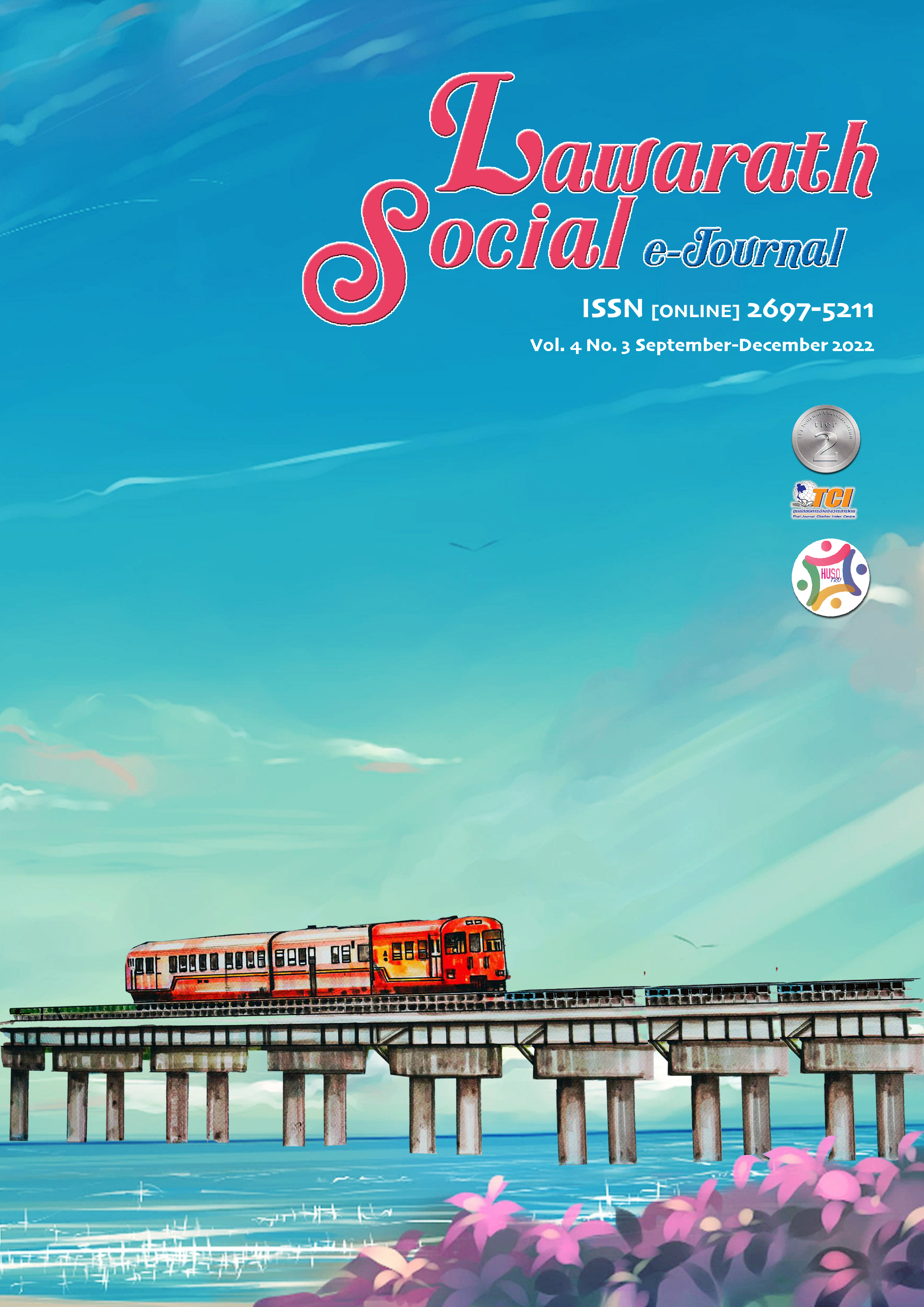The Development of Learning Model Using Structuralism Theory and Peer - Assisted Learning to Enhance Interpretative Reading of Undergraduate Students
Keywords:
Learning Model, Structuralism Theory, Peer – Assisted Learning, Interpretative Reading SkillsAbstract
This research aims to: 1) develop and assess the efficiency of the learning model using structuralism theory and peer–assisted learning to enhance the interpretative reading of undergraduate students, and 2) study the effectiveness of the learning model to enhance the interpretative reading of undergraduate students. This was a pre-experimental study using one group pretest-posttest design. The samples were thirty-second-year undergraduate students majoring in Thai Language from the Faculty of Education, Dhonburi Rajabhat University. They were selected by simple random sampling. The research instruments included: 1) an interpretative reading learning model; 2) a handbook for learning model; 3) lesson plans; 4) an interpretative reading ability test and 5) a satisfaction questionnaire. The data were analyzed using mean, standard deviation, and t-test for dependent and content analysis. The findings showed that: 1. the learning model consisted of four components which included; 1) the principles, notions, and basic theories of the learning model that were determined by the learning model developer; 2) the objectives of the learning model; 3) the learning activities that consisted of 4 steps, and 4) the evaluation of the learning model; and 2. the results of determining the effectiveness of the learning model showed that: 1) the students’ average post-test scores of their interpretative reading test after using the learning model were significantly higher than their pre-test scores with a statistical significance at .05 level, and 2) with regards to the students’ satisfaction toward the learning model, it found that, overall, they had a high level of satisfaction on the learning model.
Downloads
References
กิตติยา รัศมีแจ่ม, ทัศนีย์ เศรษฐพงษ์, ธัญญาลักษณ์ สังข์แก้ว, กฤติกา ชูผล, และศุภศิริ บุญประเวศ, 2562, ตุลาคม 1). นักศึกษา. สัมภาษณ์.
ชนาฎ จันทะโก. (2536). การศึกษาเปรียบเทียบผลสัมฤทธิ์การอ่านตีความของนักศึกษาระดับประกาศนียบัตรวิชาการศึกษาชั้นสูงที่เรียนโดยใช้และไม่ใช้แบบฝึกการอ่าน. วิทยานิพนธ์ปริญญามหาบัณฑิต มหาวิทยาลัยนเรศวร.
ดารุณี ถึงลาภ. (2552). การสร้างและหาประสิทธิภาพสื่อประกอบการสอน แบบผสมผสานวิชาการอ่านตีความ [EN202] หลักสูตรปริญญาตรี มหาวิทยาลัยรามคำแหง. วิทยานิพนธ์ปริญญามหาบัณฑิต มหาวิทยาลัยเทคโนโลยีพระจอมเกล้าพระนครเหนือ
เถกิง พันธุ์เถกิงอมร. (2542). การอ่านตีความ (พิมพ์ครั้งที่ 2). สงขลา: คณะมนุษยศาสตร์และสังคมศาสตร์ สถาบันราชภัฏสงขลา.
ทิศนา แขมมณี. (2557). ศาสตร์การสอน: องค์ความรู้เพื่อการจัดกระบวนการเรียนรู้ที่มีประสิทธิภาพ (พิมพ์ครั้งที่ 7). กรุงเทพฯ: โรงพิมพ์แห่งจุฬาลงกรณ์มหาวิทยาลัย.
ธัญญา สังขพันธานนท์. (2559). แว่นวรรณคดี ทฤษฎีร่วมสมัย. ปทุมธานี: นาคร.
สุจริต เพียรชอบ, และสายใจ อินทรัมพรรย์. (2538). วิธีสอนภาษาไทยระดับมัธยมศึกษา (พิมพ์ครั้งที่ 3). กรุงเทพฯ: โรงพิมพ์แห่งจุฬาลงกรณ์มหาวิทยาลัย.
สุนีย์ สินธุเดชะ. (2516). คู่มือการสอนแบบเรียนวรรณคดีไทย ชั้นมัธยมศึกษาปีที่ 3. กรุงเทพฯ: โพธิ์สามต้น.
อรศิริ เลิศกิตติสุข, และดวงกมล ลิมโกมุท. (2552). การสอนแบบเพื่อนช่วยเพื่อน. สืบค้น กันยายน 1, 2564, จาก http://www.thaigoodview.com/node/42182.
Huang, K., & Wang, T. (2012). Utilizing Problem-based Learning (PBL) in a University English Interpretation Class. Retrieved September 1, 2021, from https://www.semanticscholar.org/paper/Utilizing-Problem-based-Learning-(PBL)-in-a-English-Huang-Wang/29d0e60de8a2679.
Joyce, B., &Weil, M. (2009). Models of Teaching (8th ed). New York: Allyn & Bacon.
Kohn, J. J., &Vajda, P. G. (1975, December). Peer-mediated Instruction and Small Group Interaction in The ESL Classroom. TESOL Quarterly, 4(9), 379-390.
Miller, M. H. &Scholes, M. S. (1982, December). Dividends and Taxes: Some Empirical Evidence. Journal of Political Economy, 90(6), 1118-1141.
Topping, P. (2001). Managerial Leadership. New York: MaGraw-Hill.
Vygotsky, L. S. (1978). Mind in Society: The Development of Higher Psychological Process. Cambridge, MA: Harvard University Press.
Downloads
Published
How to Cite
Issue
Section
License

This work is licensed under a Creative Commons Attribution-NonCommercial-NoDerivatives 4.0 International License.



